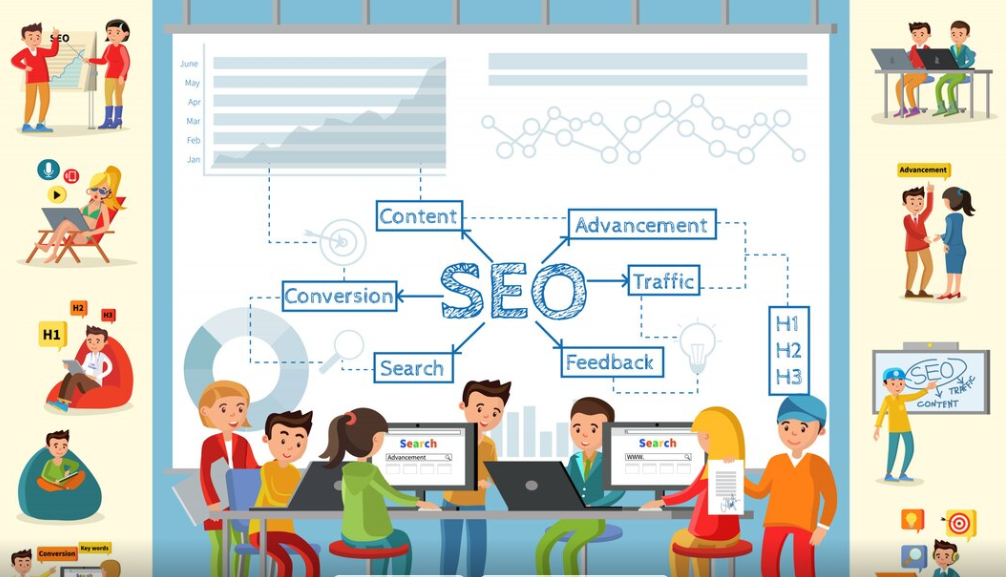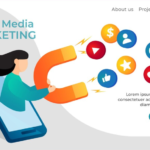SEO is the cornerstone of online visibility, and understanding its two main components—on-page and off-page SEO—is essential for creating a successful strategy. This comprehensive guide explores both aspects, their differences, and actionable strategies to optimize your website for search engines.
1. What Is On-Page SEO?
On-page SEO refers to the optimization of elements within your website that affect search engine rankings. It focuses on improving content and technical features directly under your control.
1.1 Key Components of On-Page SEO
Content Quality
- Write unique, engaging, and valuable content tailored to your audience.
- Use primary and secondary keywords naturally throughout your content.
Meta Tags
- Optimize title tags and meta descriptions with keywords while keeping them concise.
- Ensure they provide a clear summary of your page content.
URL Structure
- Use short, descriptive, and keyword-rich URLs.
- Avoid special characters and unnecessary numbers.
Header Tags
- Structure content with H1, H2, and H3 tags for readability.
- Include keywords in headers to improve relevance.
Image Optimization
- Use descriptive alt text with keywords.
- Compress images to reduce page load times.
Internal Linking
- Link to related content on your website to keep users engaged.
- Use keyword-rich anchor text for links.
Page Speed and Mobile-Friendliness
- Optimize loading times using caching and compression tools.
- Ensure your website is mobile-responsive and passes Google’s Mobile-Friendly Test.
2. What Is Off-Page SEO?
Off-page SEO focuses on activities outside your website that influence rankings. It’s primarily about building your website’s authority and reputation.
2.1 Key Components of Off-Page SEO
Backlink Building
- Earn high-quality backlinks from reputable websites.
- Avoid spammy links, as they can harm your rankings.
Social Media Marketing
- Share content on social platforms to drive traffic.
- Engage with your audience to increase brand visibility.
Brand Mentions
- Encourage mentions of your brand on blogs, forums, and other online platforms.
- Use tools like Google Alerts to track mentions.
Influencer Outreach
- Collaborate with influencers to promote your content and earn backlinks.
- Choose influencers whose audience aligns with your target demographic.
Online Directories
- List your business in relevant directories like Google My Business and Yelp.
- Ensure all information is accurate and consistent.
3. Differences Between On-Page and Off-Page SEO
| Aspect | On-Page SEO | Off-Page SEO |
|---|---|---|
| Focus | Optimizing website elements | Building external authority |
| Control | Full control | Limited control |
| Examples | Keywords, meta tags, internal links | Backlinks, social signals, brand mentions |
| Impact | Improves content and user experience | Enhances credibility and authority |
4. Why You Need Both On-Page and Off-Page SEO
Combining on-page and off-page SEO creates a balanced strategy that ensures:
- Better Rankings: On-page SEO helps with relevance, while off-page SEO boosts authority.
- Improved User Experience: On-page optimizations make your site more engaging.
- Credibility: Off-page efforts establish your site as a trustworthy resource.
5. How to Optimize On-Page and Off-Page SEO
5.1 On-Page SEO Checklist
- Conduct keyword research and target relevant terms.
- Write high-quality, long-form content that satisfies user intent.
- Optimize meta titles, descriptions, and headers with keywords.
- Use schema markup to enhance search visibility.
- Test and improve page speed with tools like Google PageSpeed Insights.
5.2 Off-Page SEO Checklist
- Build backlinks from authoritative websites through guest posts and outreach.
- Share and promote content on social media.
- Encourage satisfied customers to leave positive reviews.
- Network with influencers for collaborations.
- Participate in forums and communities relevant to your industry.
6. Common Mistakes to Avoid
6.1 On-Page SEO Mistakes
- Overloading pages with keywords (keyword stuffing).
- Ignoring mobile responsiveness.
- Skipping image optimization.
6.2 Off-Page SEO Mistakes
- Purchasing backlinks from spammy sources.
- Neglecting to monitor brand mentions.
- Focusing only on link quantity over quality.
7. Tools to Enhance Your SEO Strategy
- Google Analytics: Tracks website performance.
- Ahrefs: Analyzes backlinks and competitor strategies.
- Yoast SEO: Optimizes on-page SEO elements.
- SEMRush: Provides keyword research and rank tracking.
Conclusion
On-page and off-page SEO are two sides of the same coin, both essential for building a successful online presence. While on-page SEO optimizes your website’s internal elements for search engines and users, off-page SEO focuses on building credibility and driving external traffic. By leveraging both, you can achieve higher rankings, attract more visitors, and grow your business effectively.
Start integrating these strategies into your SEO plan today to dominate the search engine results pages!





